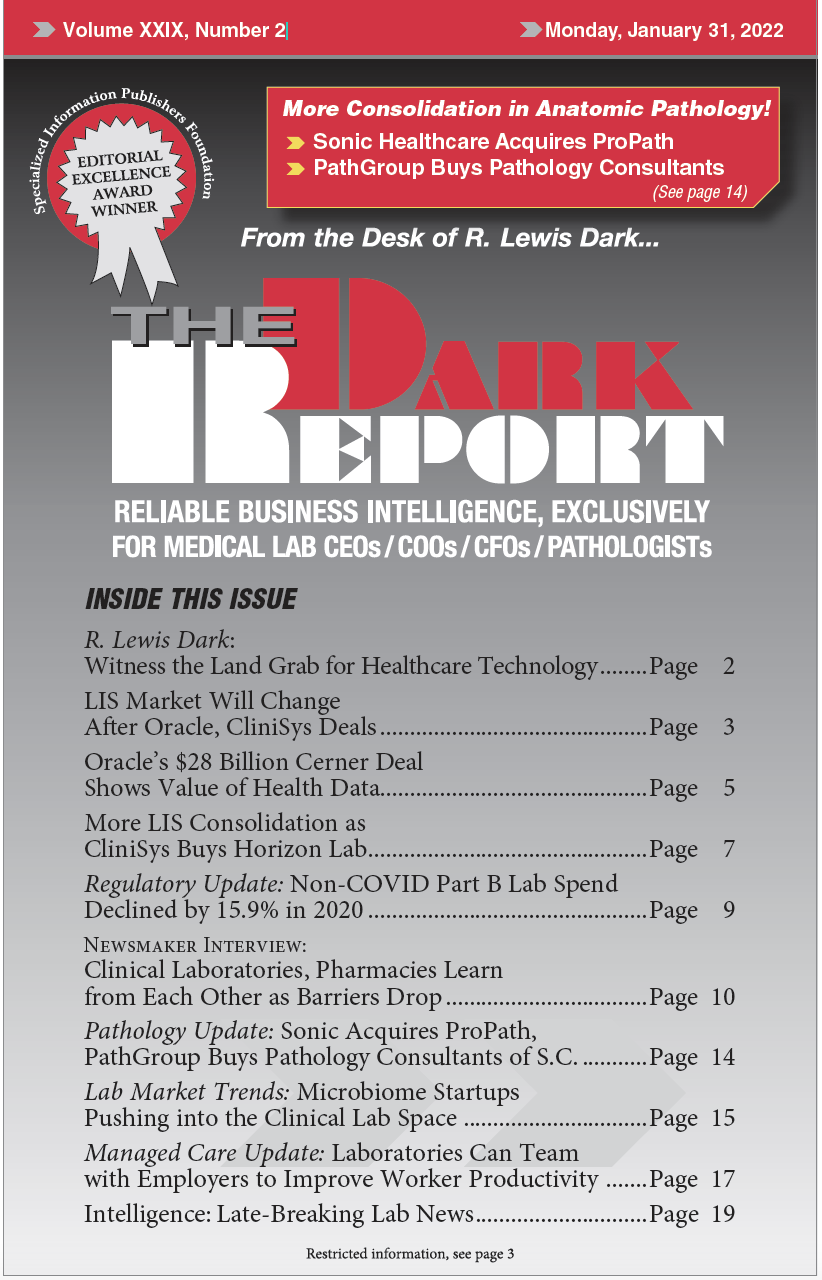REPUTABLE CLINICAL LABORATORY COMPANIES HAVE A NEW COMPETITOR in what has been called the Wild West of microbiome startups. Some of the companies in this nascent industry have been hailed for developing health breakthroughs while others have been indicted for fraud, according to Kaiser Health News. Either way, these companies are serving up a cautionary …
Microbiome Startups Pushing into the Clinical Lab Space Read More »
To access this post, you must purchase The Dark Report.


